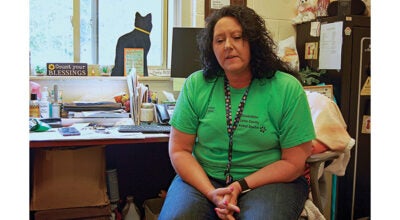Judge rules for DNA testing in Tennessee death penalty case
Published 1:57 pm Wednesday, September 16, 2020
|
Getting your Trinity Audio player ready...
|
MEMPHIS (AP) — DNA tests on a knife and other evidence must be performed in the case of a Tennessee death row inmate facing execution in December for the stabbing deaths of a woman and her daughter 33 years ago, a judge ruled Wednesday.
Shelby County Judge Paula Skahan ruled in favor of attorneys for Pervis Payne, who had filed a petition in July requesting DNA testing in the long-running case. The judge ruled that the evidence should be sent to a laboratory in California hired by defense attorneys to perform expedited testing at no cost to the state.
Payne, 53, is scheduled to be executed on Dec. 3 in Nashville. Payne’s attorneys hope that he could be exonerated if his DNA is not found on the items, or if another man’s DNA is discovered on the evidence.
Payne has always maintained his innocence in the 1987 stabbing deaths of Charisse Christopher and her 2-year-old daughter, Lacie Jo. Christopher’s son, Nicholas, who was 3 at the time, also was stabbed but survived.
At the time of Payne’s trial, DNA testing of evidence was unavailable, and no testing has ever been done in his case. A previous request for DNA testing in 2006 was refused on the basis of a Tennessee Supreme Court ruling that has since been overturned.
Improvements in DNA testing technology and the expansion of a national database of DNA profiles are compelling reasons for testing a knife that was used as the murder weapon, a washcloth and other items collected at the scene of the killing in Millington, north of Memphis, Payne’s attorneys argued.
Shelby County district attorney Amy Weirich fought the request. Even if another person’s DNA was found on the evidence, it would not exonerate Payne because there would be no indication of when the other person’s DNA was left, she has said.






